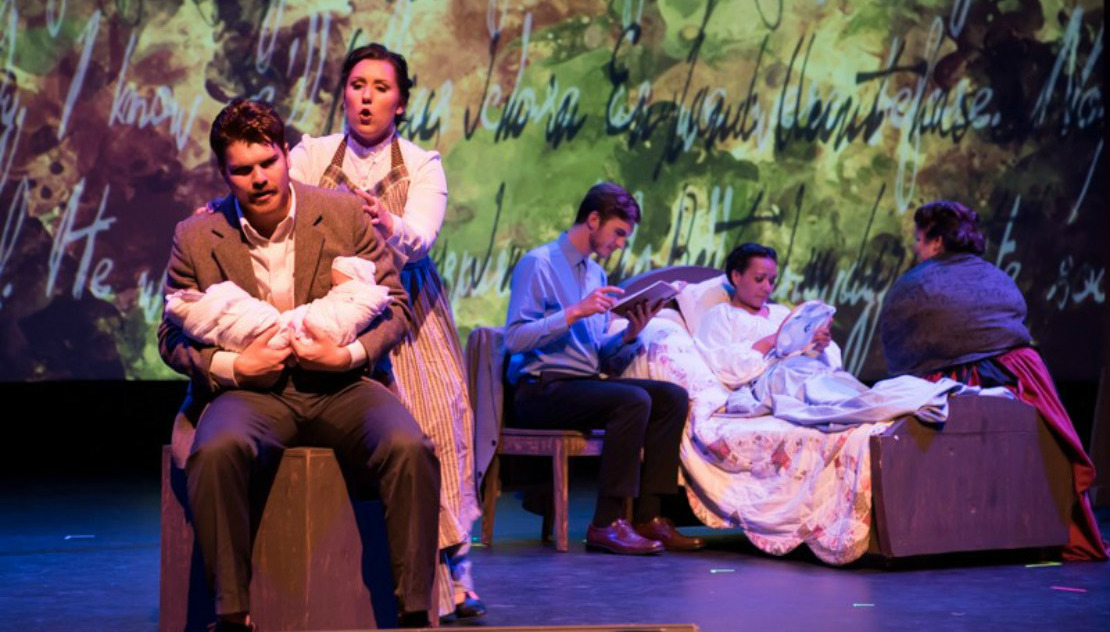American Literature on the Opera Stage

Some of the greatest American literature still resonating with people today is ideal for stage and screen. Discover some fantastic operas from our catalogue based on classic American literature and novels.
Little Women (1998) 2 hr
Mark Adamo
Libretto: the composer, based on the novel by Louisa May Alcott
More than a century after its publication, Louisa May Alcott's chronicle of growing up female in civil-war era New England remains a main dish in the smorgasbord of American popular fiction. Readers have devoured the adventures of Meg, Jo, Beth, and Amy in more than one hundred languages... The novel itself — part classic, part mass-culture perennial — as well as its young, lively characters in their antique locale reminded me of opera itself these days: an art buzzing with new writing and thinking while still working with resources (the bel-canto trained voice, the acoustic orchestra) that stabilized one hundred years ago. I knew Jo's wild imagination, her haunting memories, would free me musically to range between abstract and tonal, poetic and vernacular, song and symphonic forms. — Mark Adamo
Crossing (2015) 1 hr 40’
Matthew Aucoin
Libretto: the composer
Crossing is a musical fantasia which imagines and realizes the many forces — generosity, insecurity, longing, selflessness, bravery, unfulfilled sexual desire, a need to escape his own life, a boundless kindness — that caused a man named Walter Whitman, Jr. to forge an indelible embodiment of the American spirit in his poetry. — Matthew Aucoin
The Great Gatsby (1999) 2 hr 20’
John Harbison
Libretto: the composer, based on the novel by F. Scott Fitzgerald
Fitzgerald's magnificent portrait of the Jazz Age — in all its idealism, hopes, excesses, nostalgia, and decadence — remains one of the most widely read American novels. It tells of the rise and fall of Jay Gatsby and his love for Daisy Buchanan, married to brutish Tom. Daisy's cousin Nick Carraway shares with Gatsby proximity and background — veterans of the Great War arrived from the Midwest to seek their fortunes. Gatsby's lavish parties contrast with the intimate, intricate web of the protagonists' relationships; their reckless actions turn an American dream into something more akin to a Greek tragedy.
Many Moons (1999) 1 hr 10’
Robert Kapilow
Libretto: Hilary Blecher, with additional lyrics by Jim Friedland, based on the story by James Thurber
Based on a classic children's story resonant with the myths, dreams, and aspirations of childhood, Many Moons celebrates the life cycle — and the intuitive wisdom of children's insights over dry academic theories and learning — in an opera accessible and appealing to both children and adults.
Proving Up (2017) 1 hr 10’
Missy Mazzoli
Libretto: Royce Vavrek, based on the short story by Karen Russell
Proving Up is an opera about the American Dream, told through the story of Nebraskan homesteaders in the 1870s. A family dreams of "proving up" and obtaining the deed to the land they've settled. They obsessively list the requirements of the Homestead Act: five years of harvest, a sod house dwelling, and perhaps the most elusive element — a glass window. With their eldest son incapacitated, Ma and Pa Zegner send their youngest living child Miles on a mission to share the valuable commodity with their distant neighbors who are expecting a visit from a government inspector. Miles mounts his gray mare with the window wrapped in burlap and gallops across the land. The elements, natural and otherwise, have other plans, and Miles comes face to face with a strange man who turns out to be the ghost of a neighboring farmer, driven mad by the requirements of "proving up." The willowy figure knows all too well the cost of the American Dream, and the window soon becomes a broken mirror reflecting great tragedy.
A Streetcar Named Desire (1997) 2 hr 45’
André Previn
Libretto: Philip Littell, based on the play by Tennessee Williams
When Blanche Dubois comes to visit her sister Stella and her husband Stanley Kowalski in New Orleans, she has lost her ancestral home and her job. Blanche and Stanley dislike each other from the outset: Blanche sees Stanley as a violent man and urges her sister to leave him; Stanley sees Blanche as a moral degenerate who brings shame on the family. He tries to poison her lover’s mind against her and eventually rapes her. The strain proves too much and Blanche loses her mind. She has now lost her lover and her sister, who refuses to believe her accusations against Stanley. As the opera ends, Blanche has been committed to the asylum where from now on, she will have to rely on the kindness of strangers.
(March 2020)
